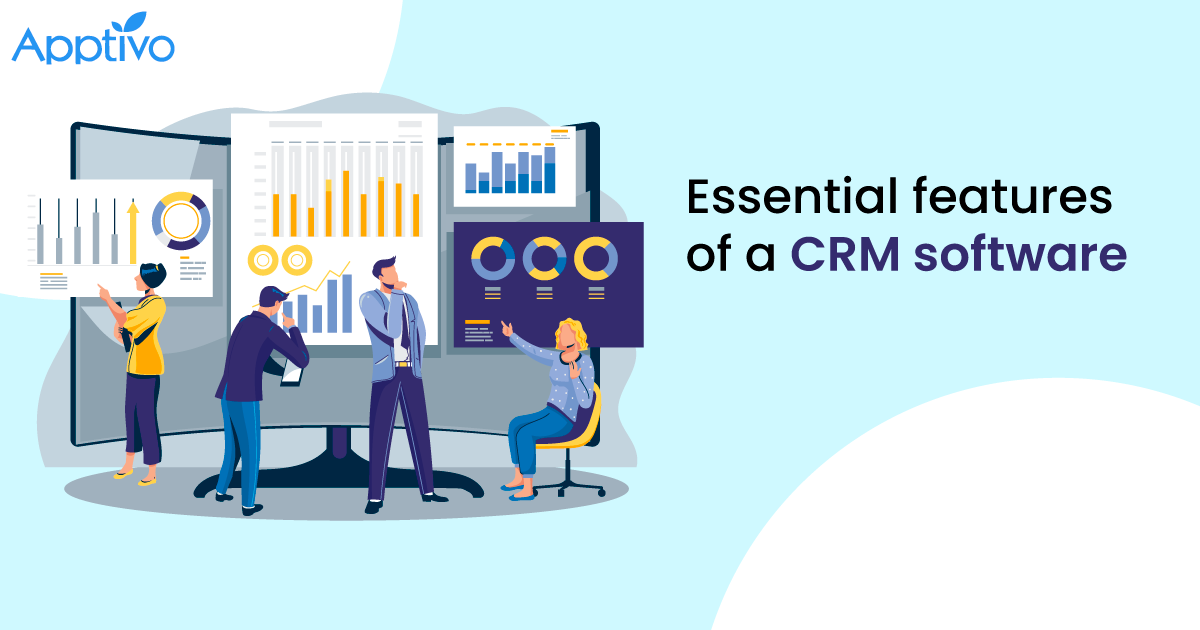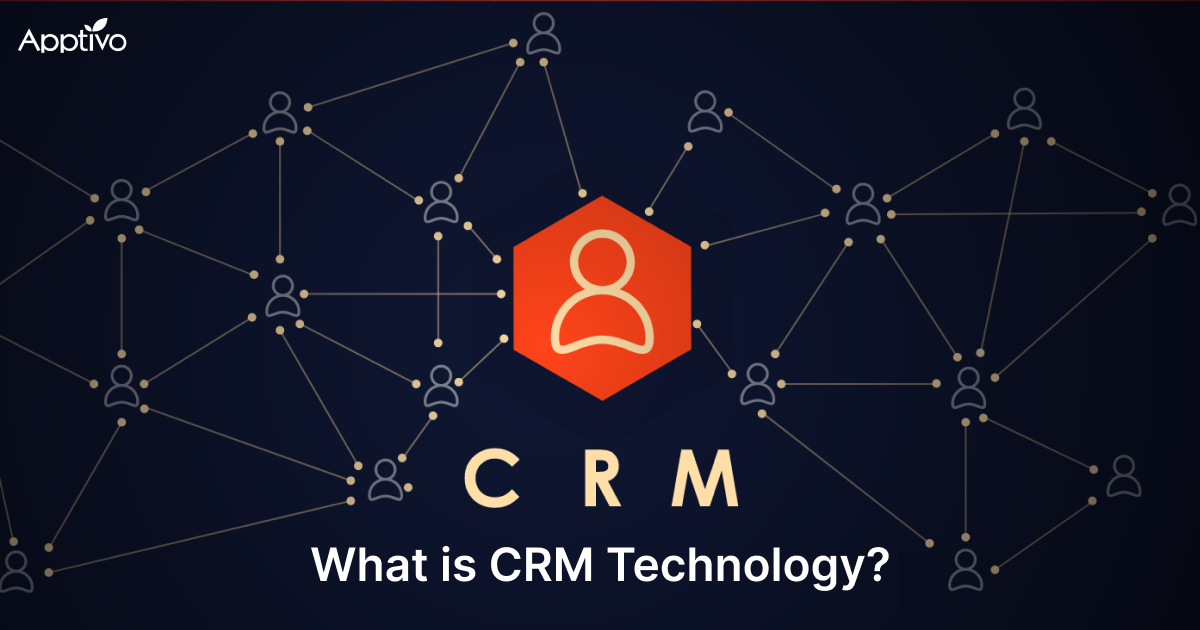In the world of business, building and maintaining strong customer relationships is like building a sturdy bridge that connects any business with their customers. Just as a bridge must be carefully constructed and maintained to ensure its strength and longevity, a successful customer relationship requires careful attention and nurturing.
A robust CRM system is like the foundation of the bridge, providing the necessary support and structure to keep the connection strong. In this article, we’ll explore the essential features of a CRM system that are essential for building and maintaining strong customer relationships, so businesses can keep their bridge steady and customers happy.
 |
Essential Features of a CRM
Before a company invests in a CRM system, it must thoroughly check out it’s features. Well, first off, it ensures that the company gets the best bang for their buck. They can avoid paying for things that aren’t necessary for their business needs by reviewing them beforehand. Moreover, reviewing features assures that they’ll have a solution that exactly meets their requirements besides avoiding the wastage of resources.
Some noteworthy aspects include:
- Contact management
- Sales Management
- Marketing Automation
- Analytics and Reporting
- Customization and flexibility
- Mobile Access
- Integration with other systems
- Scalability
- User Friendliness
Contact management
Contact management is similar to a well-coached sports team. Just as a coach develops strategies to manage the team’s players, a good contact management system helps businesses manage and organize their customer data. This includes contact details, communication history, and purchase history, creating a complete playbook for customer interactions. Businesses can use this playbook to make informed decisions on how to personalize customer interactions, increase customer satisfaction, and ultimately drive revenue growth.
Furthermore, it functions as a coach, providing real-time updates on client information, deleting duplicate data, and segmenting customers based on numerous criteria, allowing businesses to plot and adjust their messaging like a coach preparing different plays for different opponents.
Sales Management
Many of us have heard the phrase – “Sales management is the wind beneath the wings of a successful sales team”. It serves as a guiding force for firms, allowing them to monitor and optimize all sales efforts, from prospecting to closing agreements. Companies that use a robust sales management system may effectively coach their sales team, track performance, and prioritize efforts to maximize revenue growth. Sales management empowers sales people to extend their wings and soar like a bird freed from its cage by optimizing processes and automating repetitive operations.
Marketing Automation
Marketing automation is equivalent to having a crew of tireless robots working for any company 24/7. It’s a powerful feature of a CRM system that streamlines marketing processes and enhances efficiency. Businesses may successfully manage and execute their marketing efforts, from email blasts to social media posts, by utilizing automated tools and workflows. With marketing automation, tedious and repetitive tasks are handled by the robot helpers, freeing up valuable time for the marketing team to focus on creative strategies and engagement with customers. Henceforth, allowing businesses to personalize their marketing messages and target specific audiences based on their interests and behavior, resulting in increased customer engagement and lead generation.
Analytics and Reporting
A CRM system with analytics and reporting capabilities enables businesses by allowing them to collect, analyze, and report on vital customer data and performance metrics. This enables firms to evaluate the effectiveness of their plans, identify areas for development, and make data-driven decisions. Businesses can gain a competitive advantage, optimize their operations, and improve their entire customer experience by providing real-time access to data and customizable reports with visual aids such as charts and graphs.
Customization and flexibility
Customization and flexibility are important features of a CRM system that allow businesses to tailor their CRM to meet their specific needs and requirements. It refers to a CRM system’s capacity to be quickly modified and customized to suit a company’s particular processes and workflows. Businesses may adapt their CRM to changing demands and requirements with customization and flexibility, ensuring that it remains relevant and effective over time. A good CRM system should provide a variety of customization options, such as customizable fields, workflows, and dashboards, so that firms may adjust their CRM to their individual use cases. It also needs to be adaptable enough to interface with other systems and tools, such as marketing automation and accounting software. Businesses can increase their productivity, minimize manual processes, and deliver a better experience for their staff and consumers by implementing customization and flexibility.
Mobile Access
Let’s look at an example. A sales representative is on their way to meet with a potential client who has requested a quote for their company’s products. Suddenly, realizes that they do not have the latest and most up-to-date information on the customer’s needs and previous encounters with the company. Fortunately, the company’s CRM system provides mobile access, allowing the sales representative to immediately see the client’s whole history with the company, including prior purchases, support requests, and any notes from colleagues. With this knowledge, the sales professional can tailor their pitch to fit the client’s specific demands, boosting the likelihood of a sale.
Later in the day, the sales representative receives a call from a customer who has a support issue. Again, the CRM system’s mobile access capability allows the sales representative to rapidly access the customer’s account information and deliver a resolution on the spot, rather than having to wait until they return to the office. The availability of mobile access to the CRM system has enabled the sales person to give a better customer experience and boost sales for the organization by remaining engaged and responsive.
Integration with other systems
When a CRM system is integrated with other software and resources, it transforms into a powerhouse that may propel any company to new heights. Businesses may free up significant time and resources by automating workflows and reducing manual activities, allowing them to focus on what really counts – their customers. The beauty of integration is its ability to connect their CRM with other systems, resulting in an efficient system that performs flawlessly. Marketing automation, accounting software, and customer care systems can all be integrated smoothly, allowing for real-time data synchronization and quick information transfer. This not only increases efficiency, but also allows businesses to obtain useful insights from their data and make informed decisions. The end result? A better customer experience, higher productivity, and overall business success. In order to want to push the business to the next level, integration is the way to go.
Scalability
For a company that’s constantly evolving, having a CRM system that can keep up is absolutely essential. It should be able handle an increase in users and data without any hiccups or slowdowns. Furthermore, flexible pricing options are a must, ensuring that businesses can choose a plan that suits their budget and specific needs. By investing in a CRM system that can scale and adapt as the company expands, businesses can avoid the hassle of switching to a new system down the road. It’s like laying a solid foundation for a building – it paves the way for long-term success and allows the CRM to grow with the company’s changing demands. Ultimately, a CRM system that’s both scalable and versatile is an absolute game-changer for a developing organization.
User Friendliness
The ease of a CRM system can be a key factor in whether or not a business adopts it. It should be simple enough for staff to use with little to no training, requiring little to no time to become acquainted with the software. In other words, the system should be simple and easy to use, allowing personnel to get up and running quickly. Businesses can save time and money on training by using an easy-to-use CRM system, which increases system adoption and utilization.
Summary
To sum up, a CRM system is an essential tool for businesses looking to improve their customer interaction and create long-term growth. While making a choice of CRM, businesses should keep their peeled for essential features such as contact management, sales management, marketing automation, analytics and reporting among others. These features can aid businesses in getting off to a good start, increasing efficiency, and exceeding customer expectations. Businesses may establish the groundwork for long-term success and position themselves for a bright future by investing in a CRM system with these essential elements.
Latest Blogs

Role Of CRM In Travel And Tourism Industry
Travel and tourism have been a significant part of everyone’s life since the ancient period. When we skim through the pages of history, It should be noted that humans were initially nomads before they became settled in one place. They...
Read more →
WHAT IS CRM TECHNOLOGY?
Introduction CRM is a technology that helps manage the entire customer information and interactions in order to build and maintain superior customer relationships. The CRM solution replaces spreadsheets and other different applications, which makes it easy for the businesses to...
Read more →
Everything you need to know about the Annual Maintenance Contract!
1. What is an Annual Maintenance Contract? 2. Benefits of Maintenance Contracts 3. How can Apptivo CRM help you manage maintenance agreements and vendors? 4. Summary Think about getting the confidence that the machinery is well-maintained and performing optimally, without...
Read more →
